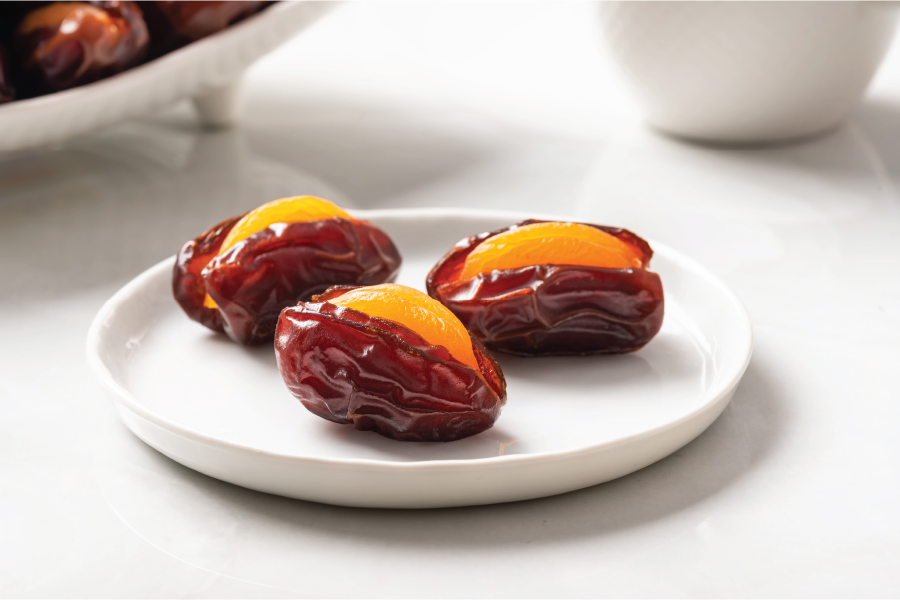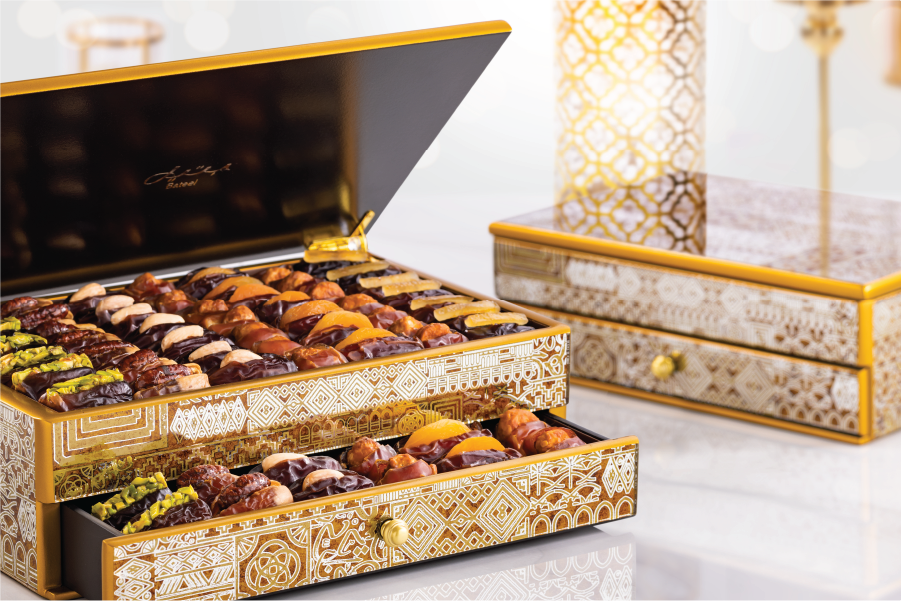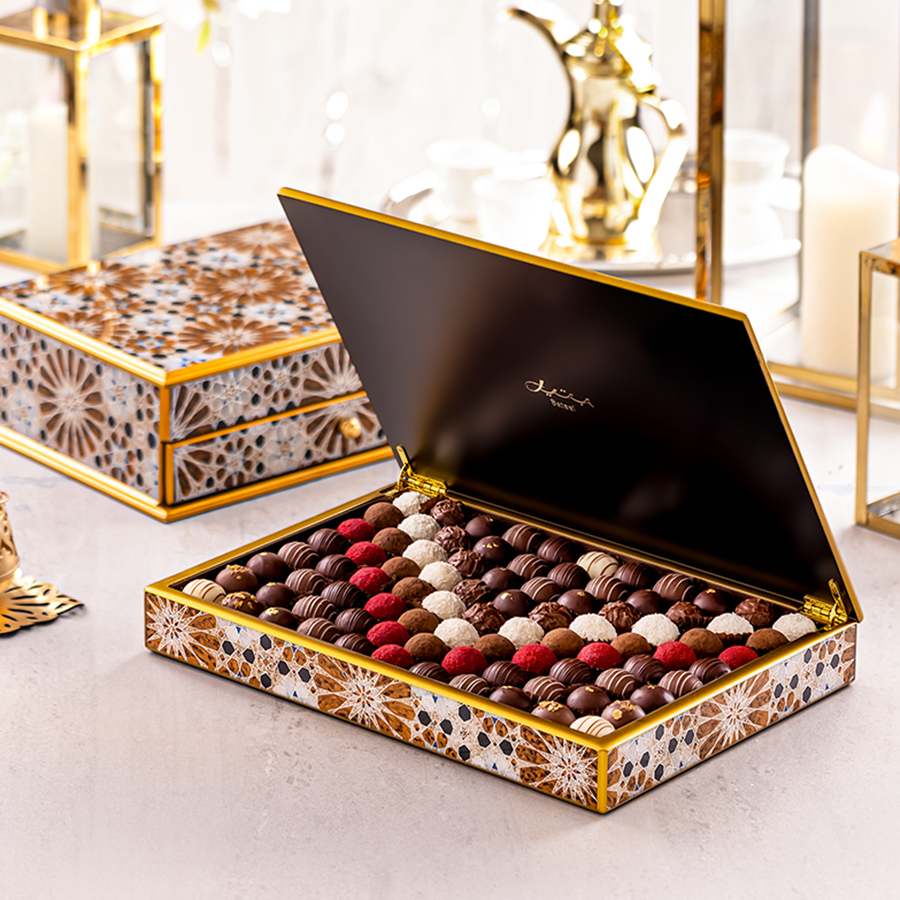
Muslims around the world unite to celebrate Eid Al Fitr. It’s celebrated right after the holy month of Ramadan, which sees the faithful fast from dawn to dusk, abstaining from food and drink to strengthen their spirituality and to empathise with those less fortunate. Translated as the ‘festival of breaking of the fast’, Eid Al Fitr is a joyous occasion that sees families gather in gratitude.
Eid Al Fitr essentials
Eid Al Fitr takes place on the first day of Shawwal in the Islamic calendar, which differs from the Gregorian calendar. The latter is a solar calendar with 12 months of 28 to 31 days each, while the Islamic calendar – also known as the Hijri calendar – follows lunar cycles, also with 12 months, but with 29 to 30 days each.
There are two Eid dates in the Islamic calendar – Eid Al Fitr, also known as the ‘Lesser Eid’, takes place at the end of Ramadan, while Eid Al Adha or the ‘Greater Eid’ marks the end of the Hajj – the annual pilgrimage to Mecca. Eid Al Adha therefore takes place on the last month of the Islamic calendar, on the 10th day of Dhu Al Hijjah.
The exact dates of Eid Al Fitr and Eid Al Adha are not fixed nor known in advance. Instead, official sightings of the Eid crescent moon are used by most countries to announce the festival’s arrival. So, if clouds are in the way or the moon is not visible for other reasons, the start of Eid can be delayed by a day or even start earlier in some parts of the world.
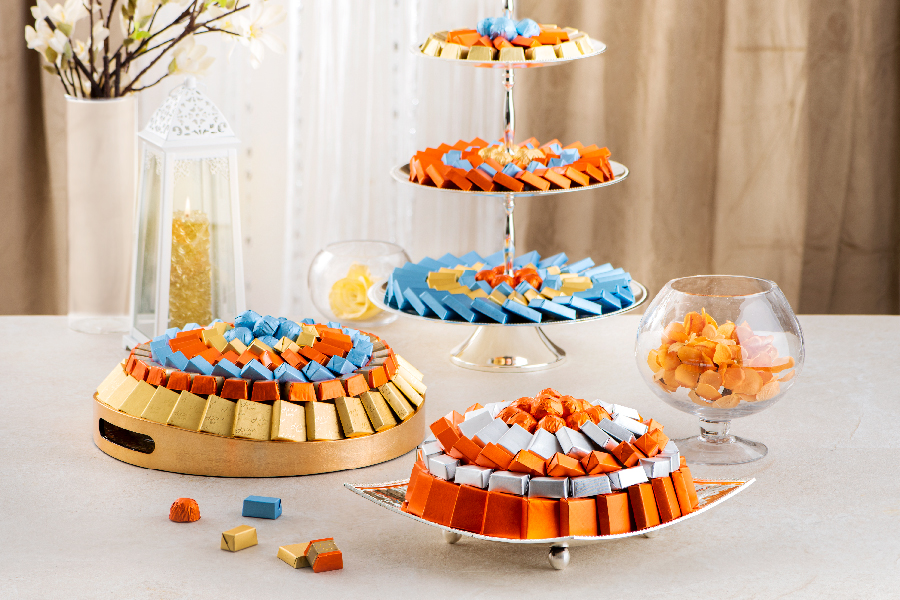
Delicious Eid food
On the first day of Eid Al Fitr, Muslims wake up early for special prayers and then prepare to welcome family and friends at home. Everyone wears fine new attire, presents thoughtful gifts to the young and old, and shares good wishes over hearty feasts.
Eid menus feature an array of versatile flavours, local spices and generations-old recipes. In the United Arab Emirates, ouzi is the Eid dish of choice. It features meat, usually goat or sheep, that is marinated in a medley of spices before being slow-cooked for hours. Other popular dishes include the harees meat porridge, and machboos with spiced chicken or fish mixed with long grain rice.
Mains involving meat are festival staples across the region. For example, in Saudi Arabia, mugalgal takes centrestage with lamb, tomatoes, onions, green peppers and a tasty infusion of spices. In Oman, the slow-roasted shuwa sees goat or lamb marinated for up to 48 hours in baharat spices, while Yemeni families come together for lamb mahshoosha. In Jordan, the mansaf presents layers of happiness with juicy meat on thin flatbread that is topped with yoghurt sauce.
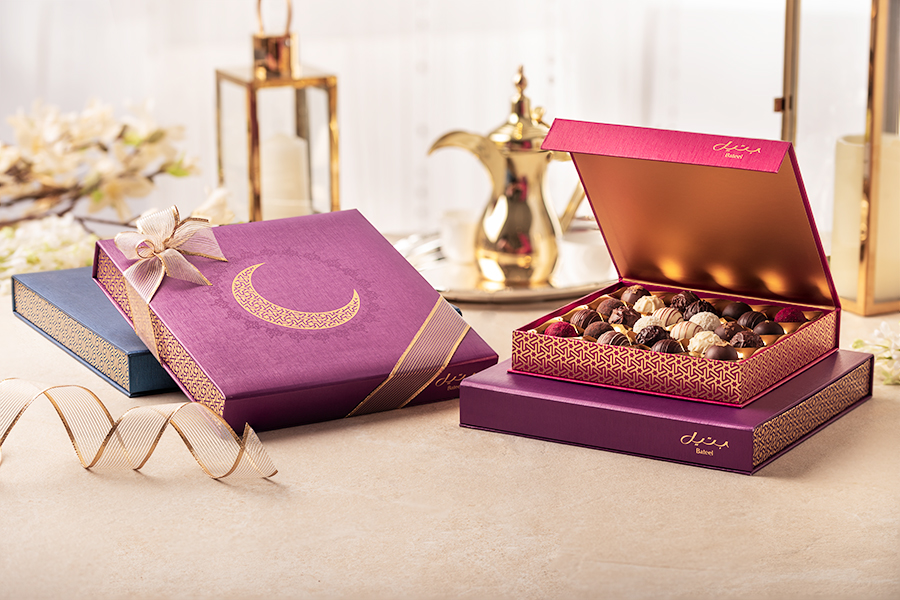
The best Eid gifts
No celebration would be complete without Eid sweets such as cookies, chocolates and dates. It is the perfect note to end every meal on, making it a popular gift choice for guests to offer welcoming hosts, and share with close friends and colleagues.
Bateel is world-renowned for its gourmet gifting range, and the Luna collection is a bestseller this Eid thanks to its chic and contemporary design. With a square silhouette, the gift boxes are available in deep pink, purple and blue with a crescent moon shaped from intricate abstract patterns – the result is a stylised ode to Eid Al Fitr.
Order a Luna gift box today on Bateel.com, which can be entirely customised to include your choice of premium dates and delectable varieties filled with macadamia nuts, pistachios, candied orange peel and more. Alternatively, visit a Bateel Boutique near you to personalise your gift with hand-crafted chocolates, date chocolates and luxury chocolate truffles in a range of flavours such as 75% dark chocolate, salted caramel, creamy coconut and other exciting temptations.
